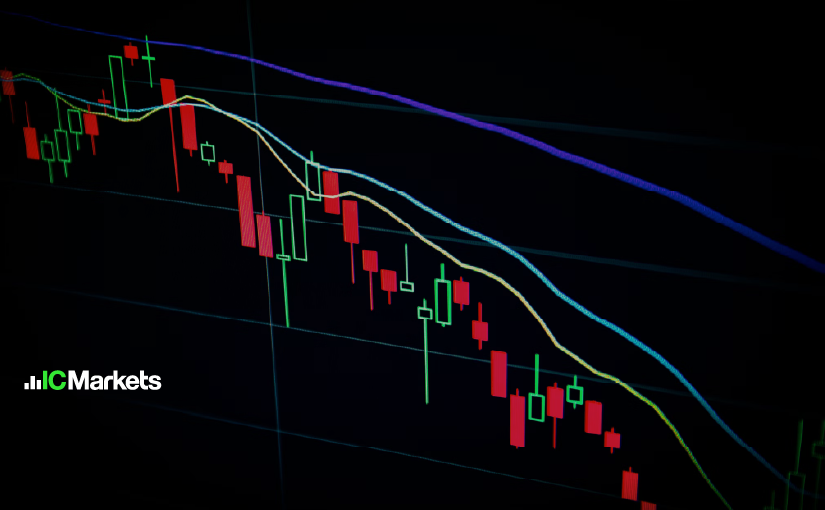Updated October 2020
Despite their popularity, CFDs, or contracts for difference, are relatively new products – their invention is widely credited to Brian Keelan and Jon Wood in the 1990s, of UBS Warburg[1].
CFD trading offers cost-effective access to global markets, all from one platform. CFDs are over-the-counter (OTC) leveraged products, derivatives that are designed to mirror underlying asset movement. This means the underlier is never exchanged.
CFDs form by way of an agreement between two parties, to exchange the difference between the opening and closing price of a trade. This allows traders to participate in rising and falling markets.
Forex Vs. CFDs
Both CFDs and foreign exchange (FX) products operate via the OTC market.
In the FX market, an individual buys and sells agreements to purchase one currency over another; the outcome is determined by the movement of price, either a gain or a loss.
What sets the FX market and CFDs apart is the latter covers a diverse set of markets, while Forex focuses on only currencies.
Range of Markets
Having the freedom to deal across several markets, such as individual share CFDs, index CFDs and commodity CFDs, is a major benefit.
As a derivative product, CFDs derive their pricing from underlying markets, typically through the futures markets (which is also a derivative). Therefore, if the underlier rises the price of the CFD rises alongside it.
IC Markets offer a broad range of CFD products:
- Equities
- Global equity indices
- Futures contracts
- Commodities
- Debt instruments (Bonds)
- FX market (Foreign Exchange)
Trading CFDs
There are two main ways of trading the CFD market: technical and fundamental analysis.
- Technical analysis is considered the more followed Technical analysis looks at price trends, using price-based studies and technical indicators to estimate future price direction. Feel free to check out our in-depth daily and weekly technical reports here, covering multiple currency pairs.
- Fundamental analysis examines the economic picture. In the foreign exchange market, for example, fundamental analysis focuses on things such as interest rates, the employment situation, trade balance and inflation.
Margin and Leverage
CFDs are traded on margin. Margin is essentially a good-faith deposit required by CFD providers to open trading positions and use leverage. It is the amount reserved in your trading account to cover any potential losses from an open CFD position.
Leveraged trading offers the ability to control a larger sum of capital using little of your own funds. Leverage in the CFD market is straightforward and ultimately governs the amount of margin required. For instance, 1:100 leverage means you can control $100 for each $1 in your account (the margin). This, as you can see, equates to 1% margin, calculated by dividing the leverage ratio (1/100). If you’re account is set to 1:200 leverage, 0.5% of the notional value is required margin (1/200).
So, trading a one standard lot position (100,000 units) on an account set to 1:100 leverage means 1% or $1,000 is the required margin.
It is worth noting that leverage is a double-edged sword – while it can increase returns, it can also increase losses.
CFD Trading Example
Assume the ASX200 (a benchmark stock index tracking the performance of 200 of the largest companies, by market capitalisation, listed on the Australian Securities Exchange) is oversold.
- The instrument trades at 4950.00/4951.00.
- One CFD contract equals $1 per index point.
- No commission is charged on indices.
A trader enters long (buys) five contracts at 4951.00. In this example the point value equals $5. Price moves in favour and hits the take-profit target at 4990.00/4991.00, realising a 39-point gain:
- $5 per point.
- Entry price 4951.00.
- Exit price 4990.00.
- Total profit = 39 points, or $195 (39 points * 5 contracts).
However, to calculate the net profit you must include any financing or dividend adjustments. Financing adjustments are applied to Indices daily should a position be kept open overnight (5pm New York time). In the case of a long trade, interest is debited to the trading account, and credited for a short position. Dividend adjustments are also applied whenever a stock in the relevant index goes ex-dividend.
Who Trades CFDs?
Some use CFDs to employ hedging strategies, a trading technique allowing you to protect against adverse movement in, say a stock portfolio. Since a CFD is a margined product, you can use leverage to hedge the total value of a position without having to pay a lot up front for it.
For example, say you hold shares in a company worth $5,000 and are concerned the stock is due for a correction, you can help protect your position by short selling $5,000 of equivalent CFDs. Should share prices fall by 5% in the underlying market, the loss in value of your share portfolio is offset by a gain in your CFD short position.
In addition to hedging, some trade for speculation with the view of profiting from fluctuations in price movement. For instance, CFD traders may be short-term traders who look to profit from intraday and overnight market movements in the CFD’s underlying instrument.
CFD Advantages:
- Leverage allows you to obtain larger exposure at a fraction of the cost.
- As there is no ownership of the underlying instrument when trading CFDs, all markets can be shorted. This is referred to as short selling.
- Trade global markets. CFDs allow indirect investment exposure to a number of financial products traded on exchanges around the world on an over-the-counter basis, allowing for diversification.
- Low transaction costs. CFDs are a cost-effective way of gaining exposure to the world’s financial markets.
- CFDs can be used to hedge investments and reduce market risk.
- In addition to using CFDs as a risk-management tool they are used to speculate on price movement.
- IC Market’s online trading platforms display real-time quotes, ensuring up-to-date data almost 24 hours a day.
- CFD trading in the UK is free from stamp duty.
- The minimum opening balance with IC Markets is 200 USD, or equivalent.
Final Words
Once a complex world left to ‘professionals’, CFDs have done a superb job simplifying derivatives, offering investors the chance to begin taking hold of their financial future.
Beginner traders are advised to start their journey on a demo account. This helps serve as a foundation to live trading.
The accuracy, completeness and timeliness of the information contained on this site cannot be guaranteed. IC Markets does not warranty, guarantee or make any representations, or assume any liability regarding financial results based on the use of the information in the site.
News, views, opinions, recommendations and other information obtained from sources outside of www.icmarkets.com.au, used in this site are believed to be reliable, but we cannot guarantee their accuracy or completeness. All such information is subject to change at any time without notice. IC Markets assumes no responsibility for the content of any linked site.
The fact that such links may exist does not indicate approval or endorsement of any material contained on any linked site. IC Markets is not liable for any harm caused by the transmission, through accessing the services or information on this site, of a computer virus, or other computer code or programming device that might be used to access, delete, damage, disable, disrupt or otherwise impede in any manner, the operation of the site or of any user’s software, hardware, data or property.
[1] https://en.wikipedia.org/wiki/Contract_for_difference#History





